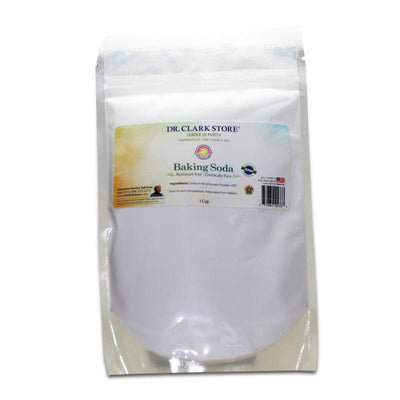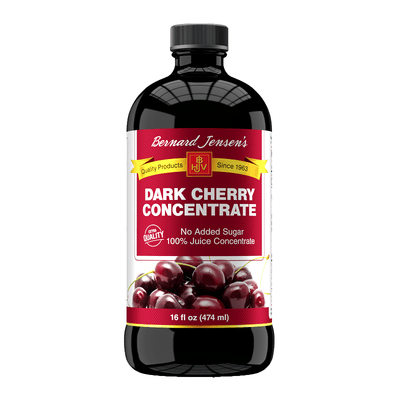Understanding Mono-Diet Protocols: Tackling Crystalline and Colloidal Wastes in the Body

Many modern health concerns are linked to excessive eating of the wrong foods and an unbalanced diet. Over time, these habits can lead to the accumulation of metabolic wastes that disrupt the body's internal environment.
The two primary forms of these wastes are crystalline and colloidal byproducts, each presenting unique challenges to our organs and detoxification systems. Monodiet protocols, especially those utilizing grapes and other single-food diets, are gaining attention as effective ways to support the body's natural cleansing mechanisms.
What Are Crystalline and Colloidal Wastes?
Crystalline wastes are often the byproducts of excess protein and salt intake. Over time, these substances can form sharp, hard residues, contributing to conditions like kidney stones and gout. Uric acid crystals and calcium deposits are common examples of crystalline wastes and tend to accumulate in the joints, kidneys, and other tissues where circulation may be restricted.
Colloidal wastes, on the other hand, result from the overconsumption of starchy, fatty, and mucous-forming foods. These are more gelatinous, sticky residues that can clog up organs, lymphatics, and blood vessels. Colloidal wastes impede the body’s ability to properly absorb nutrients and eliminate toxins, potentially leading to chronic inflammation, fatigue, and a host of degenerative conditions.
The Impact of Poor Diet on Waste Accumulation
Frequent consumption of highly processed foods, excess animal protein, sugar, dairy, and refined grains can dramatically increase both crystalline and colloidal toxins in the body. When the body faces a constant stream of such foods without enough fiber, fresh fruits, and vegetables, its natural elimination pathways become overwhelmed. Over time, this can manifest as:
- Joint pain and stiffness
- Kidney and gallbladder stones
- Digestive disturbances
- Chronic fatigue
- Skin conditions
Taking proactive steps to give the body a break from these dietary assaults can support its natural detoxification abilities.
How Mono-Diet Protocols Help
A mono-diet is a dietary protocol in which you eat only one type of food for a set period, typically a whole, natural food. This practice is rooted in traditional naturopathy and modern holistic nutrition. Monodiets are believed to:
- Reduce the digestive burden, freeing energy for cellular repair and detoxification
- Simplify nutrient intake, reducing potential irritants and allergens
- Support the targeted elimination of specific metabolic wastes
Tackling Crystalline Waste
Grapes and other raw fruit mono-diets are particularly recommended for addressing crystalline wastes. Grapes have a high water content, are rich in antioxidants, and contain natural fruit acids that help dissolve and mobilize the hard residues trapped in tissues and joints. A 3- to 7-day regimen of fresh, organic grapes (preferably including the skins and seeds, for added phytonutrients) can:
- Act as a natural diuretic, encouraging the elimination of uric acid and minerals through the kidneys
- Provide alkaline minerals that help neutralize excess acids
- Deliver bioflavonoids and polyphenols to protect cells during the cleansing process
Addressing Colloidal Waste
For colloidal wastes, mono-diets focusing on juicy fruits (like watermelon or citrus), lightly steamed non-starchy vegetables, or even short-term vegetable broth fasts can loosen and flush out sticky residues. These foods:
- Hydrate the body and thin out thickened mucous
- Provide enzymes and fiber that support breakdown and elimination
- Encourage regular bowel movements and lymphatic drainage
Popular Monodiet Cleansing Strategies
1. Grape Diet
Eat only fresh grapes for a specified duration (usually 3 to 7 days), drinking plenty of water and herbal teas if needed. This diet is especially effective for those dealing with uric acid build-up, joint discomfort, or sluggish kidneys.
2. Watermelon Monodiet
A favorite during hot months, the watermelon diet offers a gentle yet thorough flush for the urinary and lymphatic systems, helpful for those with edema, skin issues, or heat-related complaints.
3. Apple Monodiet
Apples provide malic acid that supports liver cleansing and mild, natural fiber for colon health. This option is gentle and provides balanced energy during a cleanse.
4. Steamed Vegetable Monodiet
For those needing a less fruit-heavy protocol, lightly steamed non-starchy vegetables can support cleansing without spiking blood sugar, making them suitable for individuals with metabolic concerns.
5. Broth Fasts (Vegetable Broth)
Sipping on clear vegetable broths gives the digestive system a break while infusing the body with minerals. Broth clears out colloidal sludge without placing stress on detox paths.
Tips for a Successful Monodiet Cleanse
- Prepare by gradually reducing processed foods, caffeine, and animal products 3-5 days before starting a monodiet.
- Hydrate adequately to optimize elimination.
- Listen to your body: Some fatigue or mild headaches are common. If symptoms are severe, pause the cleanse.
- Ease out by slowly reintroducing other fruits and vegetables.
Precautions
Monodiet protocols may not be suitable for everyone, particularly those with chronic health conditions or nutritional deficiencies. Always consult with a healthcare professional before beginning any restrictive diet or cleansing protocol.
Final Thoughts
Monodiet protocols offer a simple, time-honored approach to restoring balance by addressing crystalline and colloidal waste buildup in the body. Whether it’s a classic grape cleanse or another single-food protocol, the key is to allow your body's own detox abilities to reset without the ongoing burden of excess and processed foods. By incorporating these strategies seasonally or as needed, you can take meaningful steps towards greater vitality and well-being.







Leave a comment